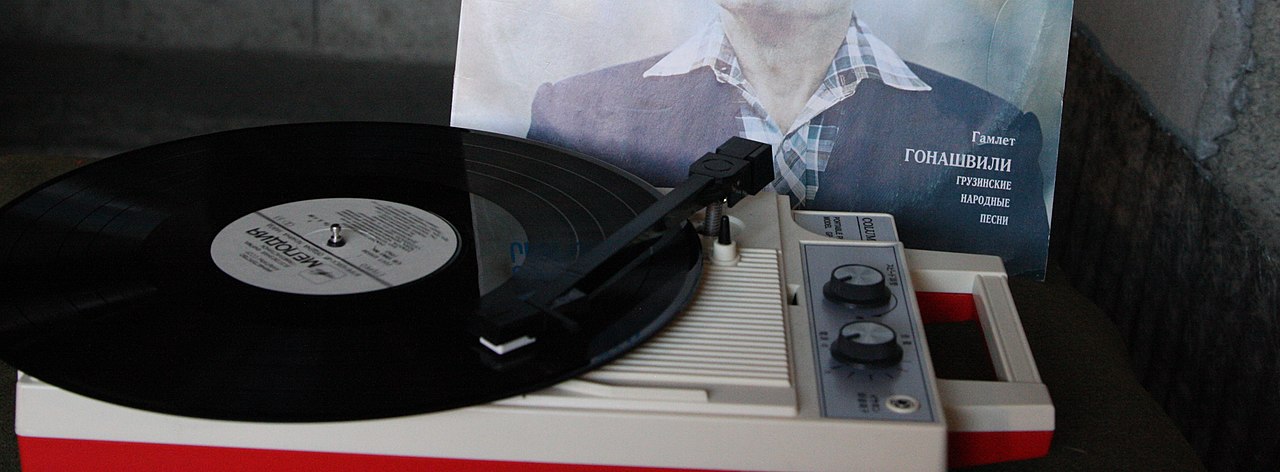The Sophomore Slump: myth or reality?
On the 8th of September 2023, global phenomenon and rising star Olivia Rodrigo released her sophomore album. GUTS was another huge success, both critically and commercially, and successfully built upon the foundation SOUR laid with more complex instrumentation, stronger hooks, and more confident vocals across the album.
It doesn’t always go this well the second time around though. In fact, there is a bit of a trend that some within music discourse have identified known as ‘The Sophomore Slump’ or ‘The Difficult Second Album’.
This is the idea that artists often come out with subpar second releases, especially off the back of phenomenal debuts. But to what extent is this true? To try and work this out, I have racked my brain to think of second releases which fall very firmly into the ‘slump category’, those which are somewhat ambiguous, and those that buck the trend completely.
What I discovered didn’t lead to straightforward conclusions. Firstly, there is not an abundance of sophomore albums I thought of which I could identify as undeniable ‘slumps’.
The third most common category is the more ambiguous second releases
The two notable examples that came to mind were Saucerful of Secrets by Pink Floyd and The Great Rock and Roll Swindle by The Sex Pistols but these were both made under exceptional circumstances where the band’s leader had become unreliable and remaining bandmates were forced to cobble an album together. So, it’s not that these aren’t ‘Sophomore Slumps’ but there are other factors to bear in mind.
Secondly, there are a few definite trend buckers. Examples include good kid m.A.A.d city by Kendrick Lamar, Nevermind by Nirvana, Demon Days by Gorillaz, Siamese Dream by The Smashing Pumpkins, Post by Björk and Discovery by Daft Punk.
Although these are all undeniably brilliant second releases, I can also see a slight pattern here. Most of them followed good, but not phenomenal, debut albums. I’m sure there are some who would dispute me on specific releases, but I think the general pattern is hard to deny. Because these artists did not receive overwhelming critical or commercial success from their debuts, they did not have expectations weighing down on them so heavily and had space to develop their sound.
The third most common category is the more ambiguous second releases. I would describe some of these as ‘difficult second albums’ but it would be a massive stretch to call any of them slumps. Examples include Favourite Worst Nightmare by Arctic Monkeys, Portishead by Portishead, Evil Empire by Rage Against the Machine, and Late Registration by Kanye West.
I think the term ‘Sophomore Slump’ is far too harsh for many second albums
Though it is true that none of these albums carry quite the same reputation, (whether that be critically, commercially or both) as the phenomenal debuts they followed; very few would describe them as subpar releases. In fact, there are a few of these that I think match their predecessor in quality or even surpass it.
There’s another type of album within the ambiguous category which is worth mentioning. That is sophomore albums which were panned upon release but have received re-evaluation as time has gone on. These were often complete left turns from the debuts they followed. Examples include Paul’s Boutique by the Beastie Boys and Pinkerton by Weezer which were received badly by fans and critics alike when they initially released but are now considered some of these artists’ best work as well as highly influential within their respective genres.
It is also worth saying that there are many artists who were well into their careers before they produced anything great. Not everyone gets it the first time, second time, or even third time around. David Bowie’s first great album was his 4th. The Beatles, one of the all-time greats, only really started the boundary-pushing they’re known for with their 6th release. Stevie Wonder was allowed artistic freedom by his label in the early 70s and released the fantastic Music of My Mind; kicking off a ‘Golden Period’ which firmly cemented his legacy as an unrivalled musical genius. It was his fourteenth release.
So what are my conclusions here? Well, I certainly think there’s some truth to the idea of a sophomore slump. It is incredibly difficult for artists to follow a great or even a good debut with the pressure of expectations and the eager anticipation of fans for new music; especially so early in their career.
For this reason, they often play it safe and release an album with a similar sound to their first. It is then criticised for being a rerun and derivative of their last release. However, when they do the opposite and go for something completely different (as Weezer and The Beastie Boys did) they risk alienating both critics and their fanbase. This leaves artists in a challenging position, which is why, more often than not, sophomore albums will not be among their best work.
But this is certainly not always the case, as demonstrated, and does not mean second albums will necessarily be bad releases. In fact, I think the term ‘Sophomore Slump’ is far too harsh for many second albums. ‘Difficult second album’ is better I think, as it acknowledges how tough it can be to create a sophomore album and isn’t demeaning of the content of these albums (which is often pretty damn good).
As mentioned earlier, there are plenty of great musicians who didn’t have particularly notable debut or sophomore releases. Not every brilliant artist hits their stride right away, so obsessing over spotting generalised patterns across discographies can only get us so far.

Comments